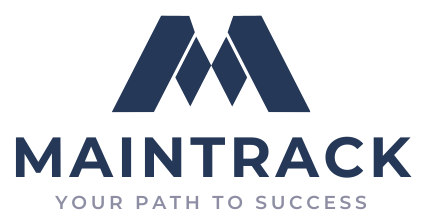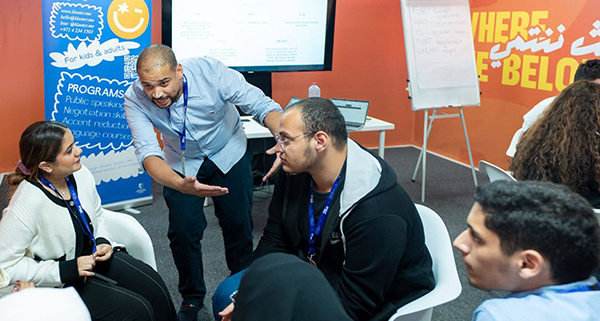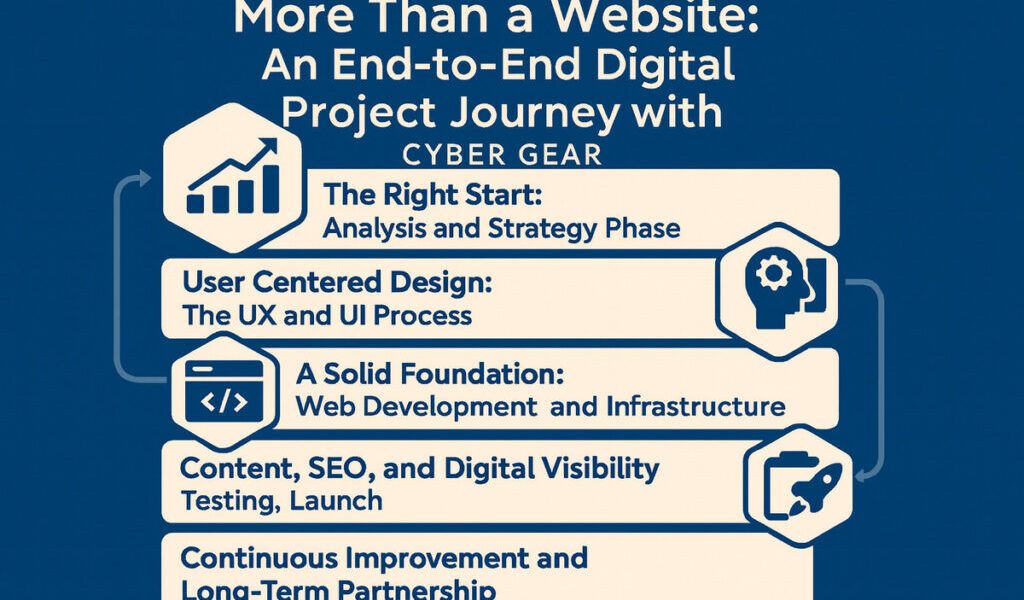In a city where over 200 nationalities live and work, language isn’t just a tool—it’s a competitive asset essential for business success. Dubai’s local economy thrives on hyper-local connections that cross cultural boundaries daily. From luxury retail associates navigating multiple languages at The Dubai Mall to real estate agents conducting negotiations in Downtown in a client’s native tongue, companies that invest in language training for employees gain tangible advantages. Companies with language-diverse workforces don’t just communicate better—they sell more effectively, build stronger client relationships, and consistently outperform competitors in Dubai’s multicultural marketplace.
Here’s why Dubai’s most successful businesses prioritize company language training—and how your organization can leverage it.
1. Winning Customer Trust in a Multilingual Market
Dubai’s customer base is 83% expatriate, with key spending power held by Arabic, Russian, Chinese, Hindi, and French speakers. A sales associate who speaks a client’s native language doesn’t just close a sale—they build long-term loyalty.
Luxury Retail: Mandarin-speaking sales associates in Mall of the Emirates can increase repeat purchases by up to 70% from Chinese tourists by creating comfortable, culturally nuanced shopping experiences.
Real Estate: Arabic-speaking agents gain faster trust in Emirati family transactions, reducing negotiation time by an average of 30% and increasing referral rates.
Healthcare: Tagalog-speaking nurses in Dubai clinics reduce miscommunication risks in patient care for the significant Filipino community, improving health outcomes and patient satisfaction scores.
The ROI is clear: Unbabel’s 2021 Global Multilingual CX Survey found that 64% of global consumers would pay a premium for products or services offered in their native language. This translates directly to Dubai’s market, where language familiarity creates emotional connections that drive business success.
2. Avoiding Costly Errors in Cross-Cultural Business
A single miscommunication in Dubai’s international business landscape can lead to lost contracts, negative reviews, or serious legal complications. Language proficiency serves as both risk management and opportunity creation in high-value transactions.
Hospitality: Russian-speaking concierges at Dubai’s luxury hotels ensure high-net-worth guests receive precisely tailored VIP treatment. This attention to linguistic detail transforms standard hospitality into personalized experiences that command premium rates. When staff can discuss specific cultural preferences and traditions in a guest’s native language, satisfaction scores increase by up to 40%, according to Dubai Tourism excellence metrics.
Legal & Finance: Bilingual (Arabic/English) contracts prevent disputes over terms that frequently arise from translation ambiguities. Dubai International Financial Centre (DIFC) reports that multilingual documentation reduces contract disputes by approximately 35%. Financial advisors who can explain complex investment products in a client’s native language also demonstrate significantly higher client retention rates, particularly among GCC nationals and Asian investors managing substantial portfolios.
Logistics: Hindi/Urdu-speaking managers smoothen supply chain coordination with South Asian partners who represent critical links in Dubai’s position as a global trade hub. This linguistic capability facilitates precise communication about shipment timelines, regulatory requirements, and quality control issues that might otherwise lead to costly delays. Companies employing multilingual logistics coordinators report 28% fewer shipping delays and customs complications.
Multilingualism in these contexts isn’t merely about basic communication—it’s about precision in high-stakes industries where subtle misunderstandings can cascade into major financial consequences.
3. Tapping into Dubai’s Future Growth Sectors
Dubai’s D33 Economic Agenda aims to double foreign trade and boost tourism, fintech, and AI—all sectors where language diversity drives revenue.
Tourism: Staff fluent in German, French, or Mandarin capture premium European and Asian travelers by providing personalized experiences throughout their journey. When hotel staff, tour guides, and retail associates can communicate effortlessly in travelers’ native languages, they create memorable experiences that encourage longer stays and return visits. This capability is particularly valuable for luxury segments where personalized service expectations are highest.
Fintech: Arabic-English bilingual teams unlock Saudi and North African markets by navigating complex regulatory environments and building trust with regional financial institutions. As Dubai positions itself as the Middle East’s fintech hub, companies with staff who understand both technical terminology and cultural nuances in multiple languages gain significant advantages in cross-border partnerships and customer acquisition.
AI & Tech: Developers who understand local Arabic dialects build better voice-recognition tools and region-specific applications. With the UAE heavily investing in artificial intelligence, companies that incorporate linguistic diversity into their development teams create more inclusive, effective technologies that serve Dubai’s multicultural population and can be exported throughout the Middle East.
Companies that anticipate language needs will lead in these emerging opportunities. By strategically aligning language capabilities with Dubai’s economic priorities, businesses position themselves to capitalize on the city’s evolving landscape while contributing to its vision as a global innovation center.
4. Government & Compliance Advantages
Dubai’s Smart City Initiative encourages businesses to adopt inclusive practices, including multilingual services through structured language training for business.
Arabic is mandatory for legal documents and government dealings. While bilingual contracts are common, the Arabic version is considered the official and legally binding one in case of disputes. Companies without strong Arabic language capabilities often face delays in processing paperwork and may miss critical legal nuances during government interactions.
Expo 2020’s legacy demands global-ready customer service. Businesses that developed multilingual capabilities for the Expo now leverage these skills as competitive advantages in Dubai’s evolving service economy.
Corporate tenders often favor businesses with culturally diverse teams. Government agencies and major corporations in Dubai increasingly include language diversity and cultural competence requirements in their vendor selection criteria. Companies demonstrating multilingual capabilities signal their readiness to serve Dubai’s international ecosystem and often receive preferential consideration during bidding processes.
Ignoring corporate language training means missing out on contracts, grants, and partnerships that could significantly expand business opportunities. As Dubai continues implementing its strategic vision, organizations with language capabilities aligned to government priorities position themselves as valuable contributors to the emirate’s development goals.
The Challenge? Bridging the Language Gap Efficiently
Smart businesses recognize that while hiring multilingual staff is one option, investing in language training for companies through employee development programs is often faster and more cost-effective.
| Factor | Hiring Multilingual Staff | Training Existing Employees |
| Time Investment | 3–6 months (recruitment + onboarding) | 4–12 weeks (short-term intensive courses) |
| Salary Premium | 20–40% higher (due to high demand for bilingual talent) | No salary increase (upskilling is a retention perk) |
| Recruitment Costs | 15–30% of annual salary (agency fees, LinkedIn ads, etc.) | Fixed training fee (scalable for teams) |
| Employee Retention | Risk of job-hopping (multilingual candidates are highly sought-after) | Boosts loyalty (employees value upskilling opportunities) |
| Cultural Fit | Uncertain (new hires may not align with company culture) | Guaranteed fit (existing team already integrated) |
| Industry-Specific Skills | Limited (language skills ≠ industry knowledge) | Customized training (e.g., “Arabic for Real Estate Agents”) |
| ROI Timeline | 6–12 months (to see full productivity) | Immediate application (skills used right after training) |
Why spend AED 200,000+ hiring a bilingual sales manager when you can provide spoken English classes for employees or Arabic language training to your top performer for a fraction of the cost?
Klaster Language and Communication Hub: Your Partner in Multilingual Excellence
Klaster offers comprehensive Arabic and English training programs for Dubai’s corporate clients. Our B2B language solutions deliver:
- Foundational Language Training – Effective Arabic and English programs that build practical communication skills
- Flexible Delivery Options – On-site corporate classes, online training, hybrid learning, and executive one-on-one coaching
- Measurable Progress – Regular assessments to track improvement and ensure business value
- Cultural Context – Understanding of cultural nuances that impact business relationships in Dubai
Forward-thinking Dubai companies like PwC, Baynunah, Ma Hawa, and Terraco trust Klaster* for expert-led corporate language training that drives real business results. Our tailored programs focus on practical communication skills, empowering your team to thrive in everyday business interactions in Dubai’s multilingual marketplace.
Partner with Klaster* and discover how our corporate language training can become your strategic multilingual advantage essential for success in Dubai’s diverse business environment.




